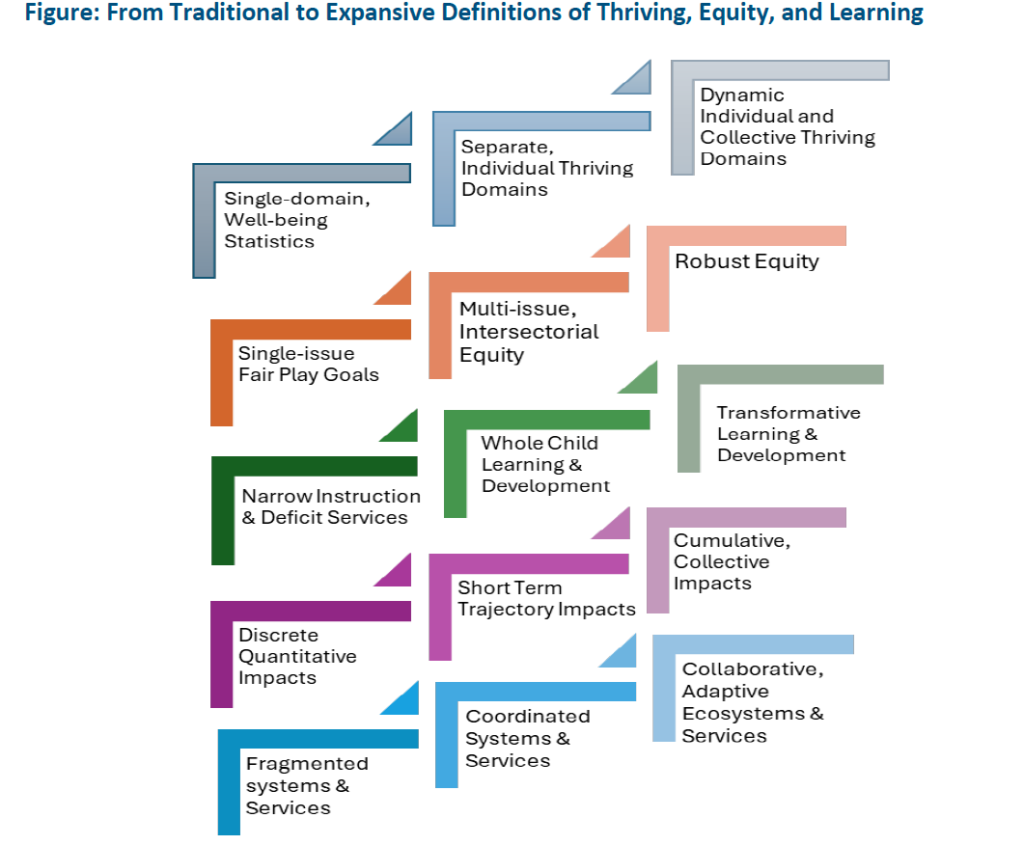
Among my many roles I serve as an American Institutes for Research (AIR) Scholar, part of AIR’s Equity Initiative. It is in this capacity that I have been working alongside long-time colleague and friend David Osher, AIR Vice President and Institute Fellow, to expand upon the ideas introduced in Thriving, Robust Equity, and Transformative Learning and Development (which we coauthored with Jill Young, Hal Smith, Deb Moroney, and Merita Irby in 2020).
In Equity-Centered Thriving, we present our constructs of robust thriving from an equity-centered perspective that emphasizes the dynamic interconnections between and among individual thriving, collective thriving, and robust equity.
We believe thriving and equity hold promise for a better country and world. Yet they are stubbornly elusive goals. Efforts to achieve both have suffered from attempts to narrow goals and standards. Thriving and equity are dynamically interdependent, cumulative, and culturally influenced. Our capacity to address one depends on our capacity to address the other.
In this paper, we open a door to new thinking, research, and practice to help get us there:
We synthesize the scholarship across multiple disciplines and review work from indigenous scholars and community-responsive researchers and practitioners.
We present expansive definitions of thriving and equity separately and in their context-dependent and dynamically interdependent wholeness.
We introduce robustness into our conceptualizations of both.
We explore the advances that already underway in practice, policy, and public opinion (see figure below) to reject and move beyond incomplete individual, isolated definitions of thriving and equity and narrow definitions of learning (left column), to more innovative approaches (middle column), toward the conceptualizations recommended in this paper (right column) including the need to consider cumulative, collective impacts and adaptive ecosystem support for robust thriving and equity.
We summarize key points that underlie both terms and use these definitions to examine the factors and conditions that promote or constrain thriving and equity.
We know enough from the convergence of bodies of knowledge across multiple disciplines, as well as from practice, that if we desire a world in which people thrive and are treated equitably, we can and must do better. We hope this paper provides both the foundational research and suggestion of new directions that help us begin to do so.
We welcome your contributions to the topic. Please reach out to talkwithus@kpcatalysts.com if you’d like to join to the discussion.




No comment yet, add your voice below!